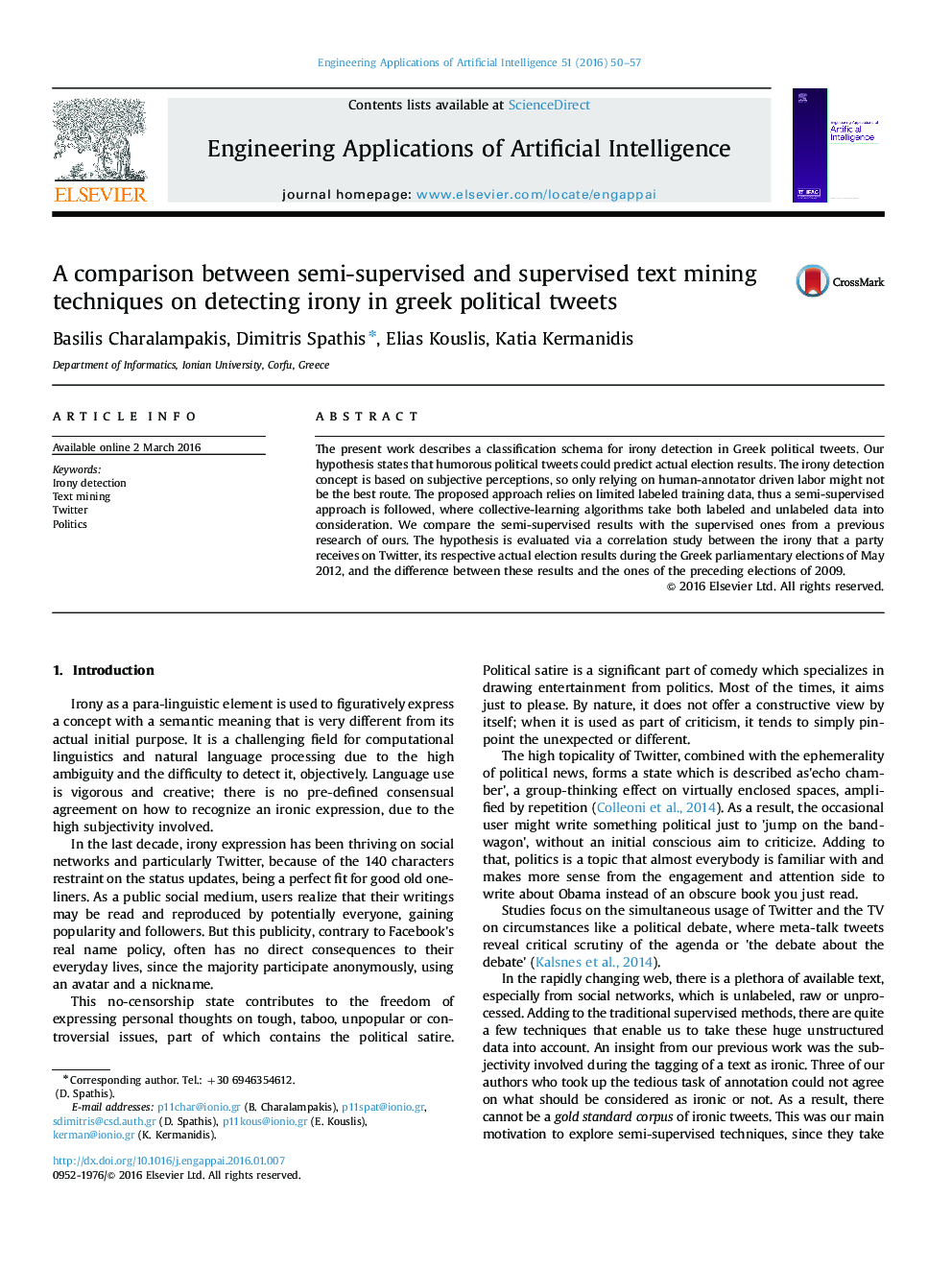| Article ID | Journal | Published Year | Pages | File Type |
|---|---|---|---|---|
| 380221 | Engineering Applications of Artificial Intelligence | 2016 | 8 Pages |
The present work describes a classification schema for irony detection in Greek political tweets. Our hypothesis states that humorous political tweets could predict actual election results. The irony detection concept is based on subjective perceptions, so only relying on human-annotator driven labor might not be the best route. The proposed approach relies on limited labeled training data, thus a semi-supervised approach is followed, where collective-learning algorithms take both labeled and unlabeled data into consideration. We compare the semi-supervised results with the supervised ones from a previous research of ours. The hypothesis is evaluated via a correlation study between the irony that a party receives on Twitter, its respective actual election results during the Greek parliamentary elections of May 2012, and the difference between these results and the ones of the preceding elections of 2009.
